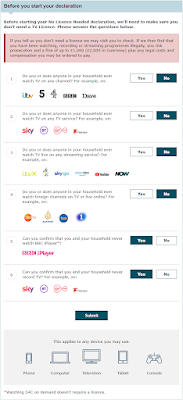Former BBC News presenter Martine Croxall is taking the national broadcaster to an Employment Tribunal over allegations of workplace discrimination.
Croxall, 55, joined the BBC in 1991 on a work experience placement with Radio Leicester. After several years touring the Corporation's local and regional newsrooms, she became a presenter on the national BBC News channel in 2001.
In recent years she has been a regular presenter on the BBC News channel, as well as being a stand-in presenter on the Corporation's flagship News at One and News at Six programmes.
Croxall was unceremoniously dumped from the airwaves in 2023, as part of the BBC's plans to restructure its news output. Croxall's departure coincided with that of several other very experienced, very talented, middle-aged presenters and reporters.
News has now emerged that the thirty-year veteran is taking the BBC to an Employment Tribunal, amid claims of sex and age discrimination. The case is listed at London Central Employment Tribunal on 1st May 2024.
Several of her co-workers - Karin Giannone, Geeta Guru-Murthy, Kasia Madera and Annita McVeigh - are also taking action against the BBC.
The BBC has form for discriminating against its female journalists.
In 2020 an Employment Tribunal ruled that the BBC had unlawfully discriminated against Samira Ahmed, who received a fraction of the pay of a male presenter, Jeremy Vine (insert expletives here), for doing a comparable job.
On the back of Ahmed's tribunal win, the BBC went into damage-limitation overdrive in an effort to stave off similar claims.
According to a BBC insider at the time: "They've spent a huge amount of money telling women they don't have a claim - but now they're approaching women as they head to tribunal and offering to make it go away."
Given the vast army of lawyers employed by the BBC it is remarkable the frequency with which the national broadcaster finds itself in legal hot water. They are, in the main, BBC lawyers cast in the same mould as Post Office lawyers - overpaid, undertalented, content to bypass due process and with a dubious interpretation of acting in the public interest.
I'm sure we'll be hearing a lot more about how the BBC uses public money to silence disgruntled employees over the next few days.
If you've found this article useful please consider liking us on Facebook, following us on Twitter or downloading our free ebook.



